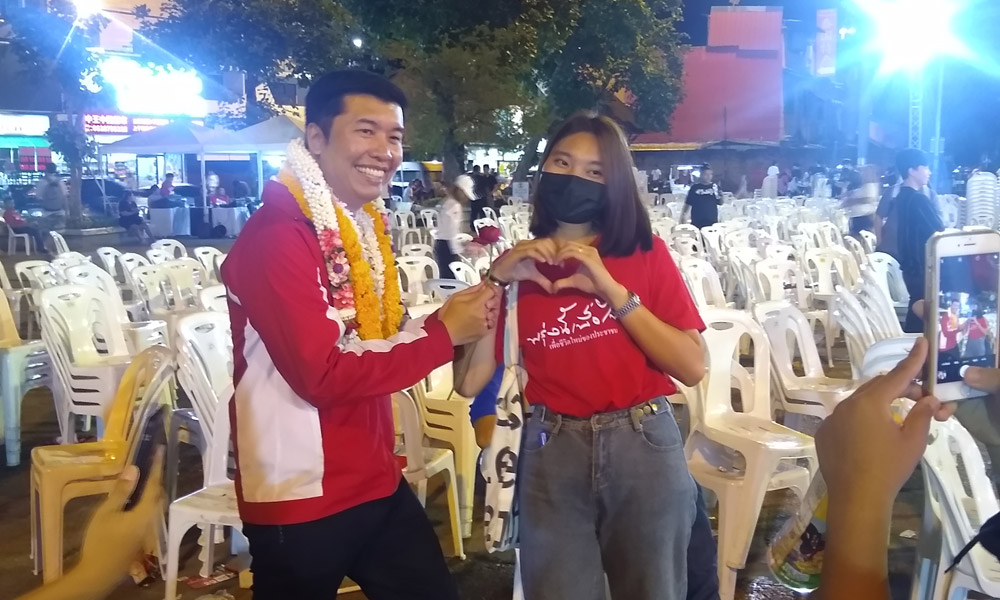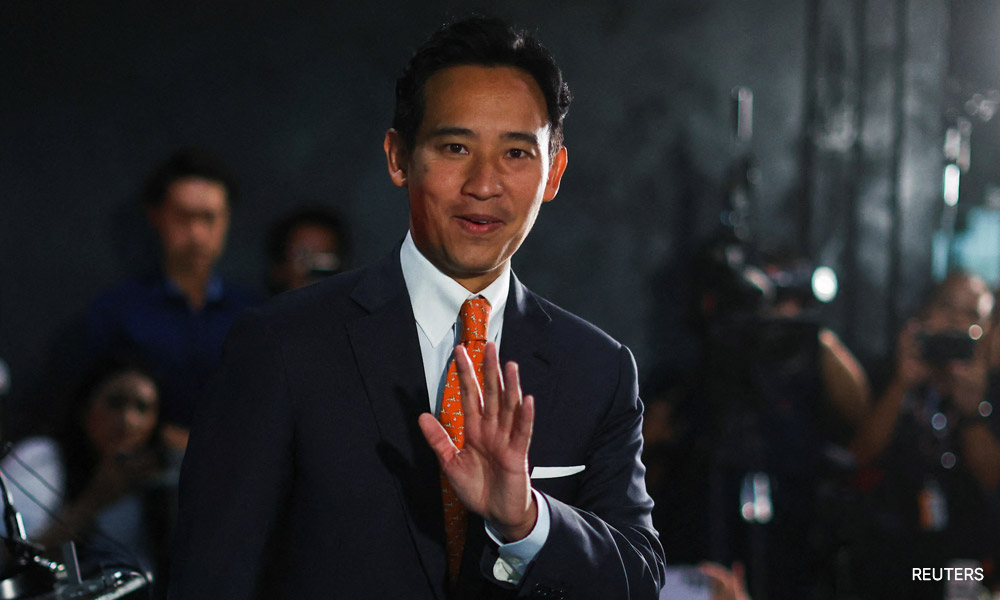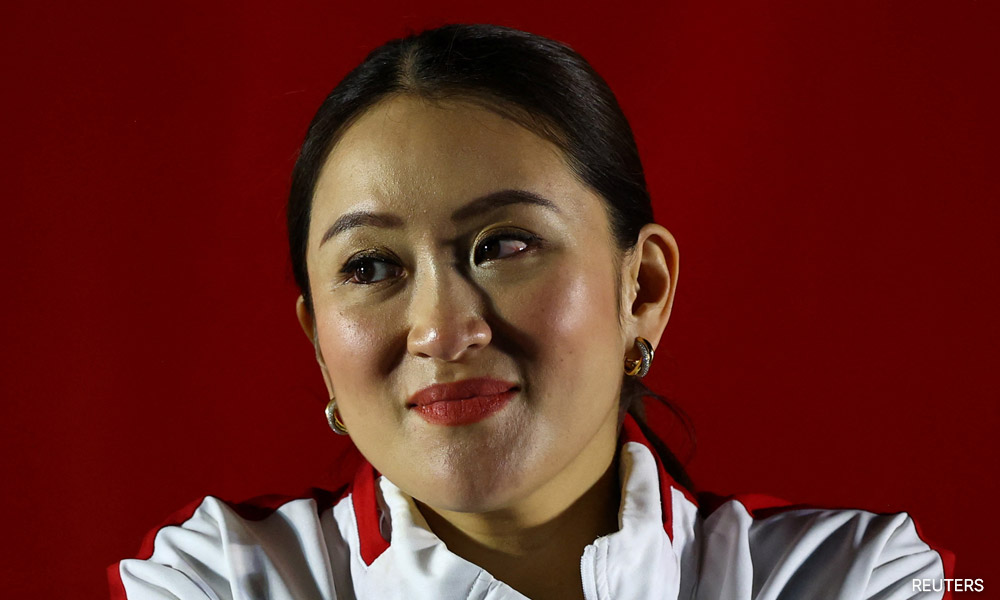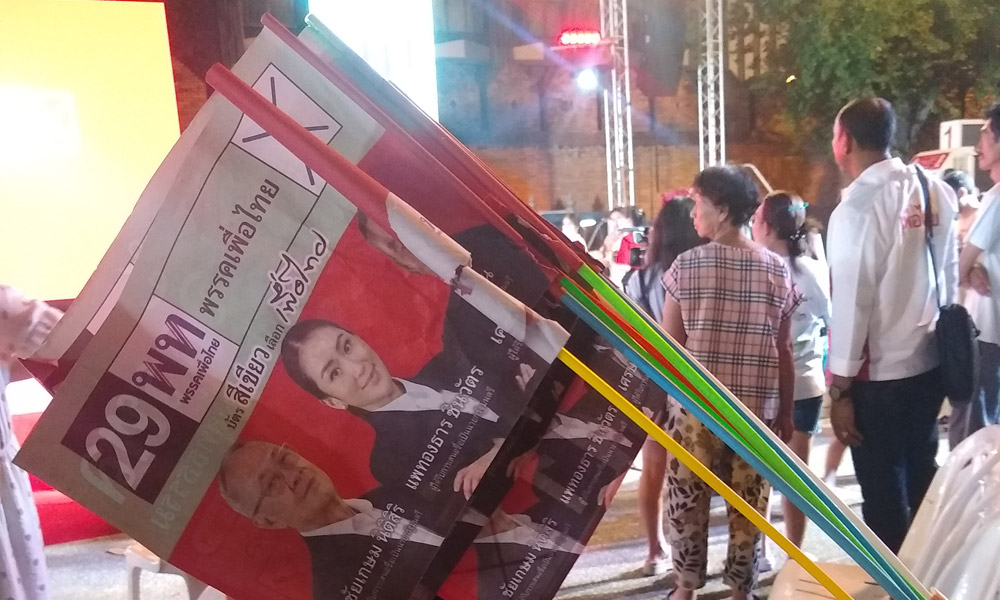Few were looking at Chiang Mai as a “hot” area in Thailand’s election yesterday.
They assumed that heavily-favoured Pheu Thai, Thaksin Shinawarta’s party, would win decisively. I decided to visit there irrespective, as my gut was telling me this would be where I would learn.
Pheu Thai’s campaign theme (and song) in the last stages of the campaign was “landslide”. What slid, however, was Pheu Thai performance. Even in Thaksin’s home village of Sankampaeng, his party lost.
Chiang Mai emerged as a swing zone, Move Forward’s front line.
When the final results were counted, favoured “red” Pheu Thai only won 141 seats (as opposed to over 200 predicted), the second highest, with “orange” Move Forward securing over 152 seats across the country, including in the north and sweeping all the seats in Bangkok.
Decisively, incumbent prime minister and military general Prayut Chan-o-cha was routed by opposition forces.

The political dust in Thailand is still settling. Coalitions are being formed (between Move Forward and Pheu Thai) and the possibility of more conservative forces not giving up power remains real.
The Senate will play a pivotal role with 250 seats. It is a body full of appointees tied to the status quo.
So far, both Move Forward and Pheu Thai, along with four other parties, have formed a coalition, securing 309 MPs. They will need support from the Senate to reach 375 to be able to form a government.
It will be an intensive few weeks for negotiations, as yet another conservative political establishment in Southeast Asia wrestles with pressures for reform and change.
Orange, Thailand’s new normal
It is these pressures that need to be unpacked. The media continues to characterise Move Forward as “radicals” with their agenda for substantive policies to improve governance and reforms, including on lese majeste laws and a reduced role of the military in politics.

They fail to fully appreciate that for many ordinary Thais – over 14 million from the party list vote alone – their agenda is anything but radical.
It reflects a “new normal” – yes, an ideological pole, but one in which the issues raised are seen as more acceptable than the “radical” label implies.
Here, I share some observations about the campaign, drawn from conversations with Thais in (and around) Chiang Mai.
Before election day, it became clear that Move Forward had gained considerable political traction, and their platform had indeed become mainstream.
The reasons lie in the last eight years of Thai politics, a corrupt military government that refused to give up power and treated its people as secondary. The exclusion of alternative voices, hardships and lockdowns (especially during Covid-19) opened up in the election.
Many will interpret the vote as being about embracing democracy. Clearly, this is one element of the results.
Yet, conversations suggest the vote was as much about tapping into ordinary suffering and pent-up anger towards the military and its governance.

Move Forward represented the clearest choice, the most decisive choice to reject the governance of the past eight years, to move the country “forward”:
Vignette 1: A 28-year-old woman working in Chiang Mai, originally from near Chang Rai and who voted in early voting (a method that allows any registered voter to vote ahead), described how she felt.
She spoke of “dehumanisation”, being treated without dignity or respect. “We are not even human to them. They don’t care about us. We need someone in government who sees us.”
Vignette 2: A 47-year-old truck driver from Sankampaeng outside Chiang Mai explained why he returned to vote, and reorganised his work schedule.
He said he used to be “red” but felt “orange” captured his “fire”. He explained, “the time for old politics has passed. We need a party that had ideas to make our country stronger, to fix our problems.”
Vignette 3: A 40-year-old Grab driver from Chiang Mai took another tact:
Driver: I am a democracy activist.
Me: Have you been part of the protests?
Driver: We do not need to go to protests any more. It is all online. We participate through watching.
Me: Are you following the campaign closely?
Driver: As a voter, I am part of the campaign. This is what makes me an activist.
He went on to talk about his fears of a military return and the independence of the Election Commission. He stressed the need for more open politics for a stronger economy, and a more dynamic Thailand.
Vignette 4: A 21-year-old female university student native from Chiang Mai: “I will vote for the possible, the future. They embody what I want Thailand to be.”
When asked why she would opt for Move Forward rather than Pheu Thai she said: “They are the politics of the past. We want the future.”
Pulse for change
From the Farmers Federation of Thailand revolts of the 1970s to being the centre, the red shirts movement after the 2006 coup, Chiang Mai has long been a centre of political contestation in modern Thailand.
The centre of the Lanna kingdom, it has its own cultural and political identity. It thus should not be a surprise that it also reflects contemporary political divides and a push for change.
Beyond its unique political history, two other factors stood out.
Pheu Thai took its supporters for granted, expecting them to reward policies of the past strengthening social safety nets and follow its leader, the Shinawatras, over a decade later.

Many did. Others did not, in part because many young people have no immediate memory of Pheu Thai’s government and for others the practices of this party driven by patronage and paternalism were outdated.
Move Forward promised more concrete and participatory policies.
Not to be left out is Chiang Mai’s proximity to Myanmar. Centuries ago, Chiang Mai was part of Burma, and it continues to have strong cultural ties. Many from Myanmar have found refuge in this more welcoming city.
The brutality of the Myanmar junta, and Thailand’s quiet acquiescence to the 2021 coup, have served to reinforce the extremes of military brutality.
While Thailand’s military is far from its crimes-against-humanity neighbour, today’s Myanmar junta captures the horror of the possible and reinforced the normality of a call for the military to leave office.
It is not a surprise that one of the first statements of Move Forward’s leadership, prime ministerial-candidate Pita Limjaroenrat, a day after polls, is a call to adopt a new approach for Thailand towards Myanmar. It will not be easy.
When I left Chiang Mai, my last conversation was with two young airport staff. Smiling they were hopeful for Thailand, excited about the election and possibility of renewal, a promise of better government.

There was a sense that hope was blossoming after a long time, that the bright colours of orange and red offered a brighter future.
The experience in Southeast Asia shows that it will not be easy to implement reforms, or even to stay in power when conservative forces consolidate and retaliate.
Yet, once again, the region – Chiang Mai and Thailand- has shown that when people’s power is taken away, it often comes back even stronger. - Mkini
BRIDGET WELSH is an honorary research associate of the University of Nottingham, Malaysia’s Asia Research Institute (Unari). She is also a senior research associate at the Hu Fu Centre for East Asia Democratic Studies and a senior associate fellow of The Habibie Centre. Her writings can be found at bridgetwelsh.com.
The views expressed here are those of the author/contributor and do not necessarily represent the views of MMKtT.




No comments:
Post a Comment
Note: Only a member of this blog may post a comment.